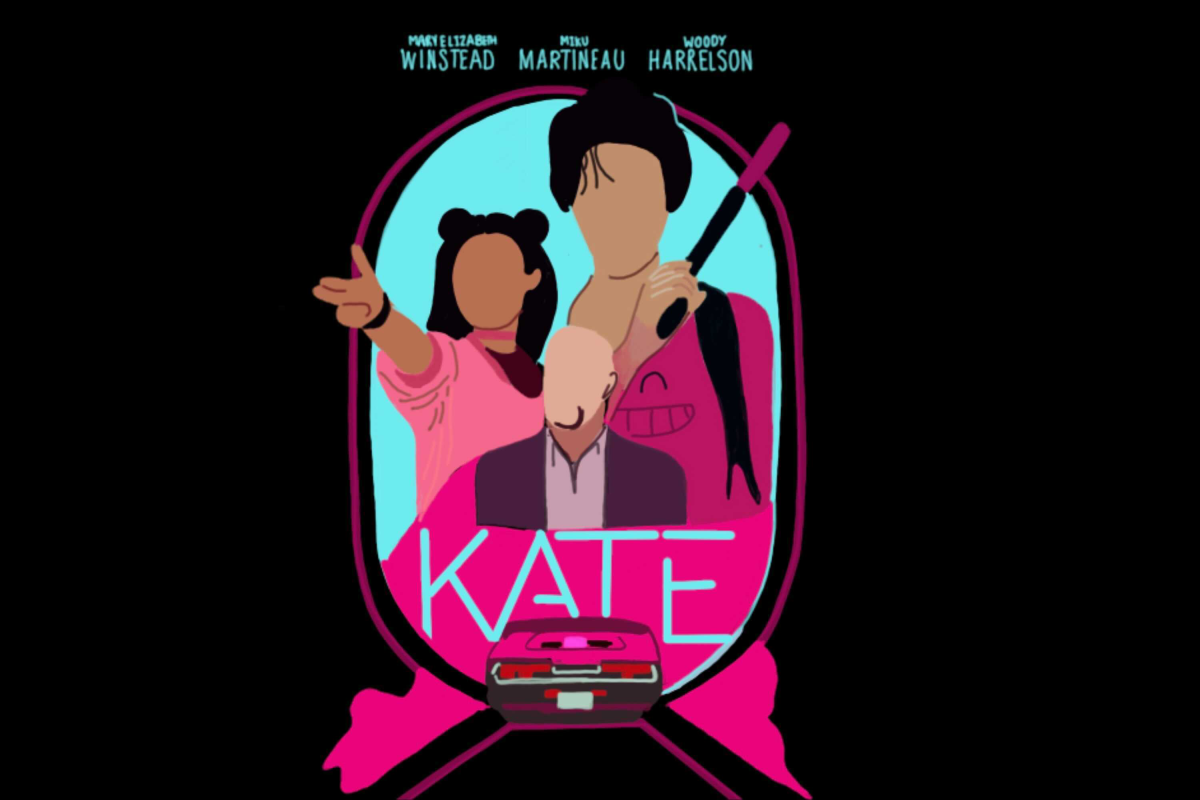Written by Umair Aleem and directed by Cedric Nicolas-Troyan, “Kate” is a stylish and fast-paced action thriller about a dying assassin who spends her final twenty-four hours embarking on a revenge spree against those who poisoned her. The film stars Mary Elizabeth Winstead, Miku Patricia Martineau, Woody Harrelson, Tadanobu Asano and Michiel Huisman. It is currently available for streaming on Netflix.
The narrative of “Kate” follows the titular character, played by Winstead, ten months after completing a hit in Osaka that forced her to break her one rule: never put a child in harm’s way. The lingering guilt eventually causes Kate to inform her handler and trainer Varrick, played by Harrelson, that she plans to retire from their line of work after completing her final mission.
The mission goes awry, however, when Kate learns she has only a day to live. With nothing left to lose, the dying hitwoman chooses to use the last of her strength to take the Yakuza boss responsible for her impending doom and anyone who gets in her way, with her to the next world.
Say what you will about the plot, but “Kate” is an undeniably stylish and sleek visual marvel. Nicolas-Troyan takes full advantage of the Japanese setting not only with the film’s background scenery, but also by integrating it into both the musical score and the rhythm of the fight scenes.
Composer Nathan Barr’s work is superb and memorable. The action scenes are given a fast-paced and exhilarating techno sound that matches the modern Osaka aesthetic. However, those tracks are balanced by calmer and more somber music for the film’s dramatic moments. In addition to Barr’s original work, the soundtrack includes a collection of diegetic J-pop songs that serve to liven up the city landscape.
Nicolas-Troyan’s direction delivers amazingly choreographed and shockingly brutal fight scenes. However, while the battles between the assassins emphasize the thrilling contest of skill and killer instinct, the violence that occurs between civilian characters carry a disturbing heaviness, conveying the horrific trauma on their psyches.
With such stellar production, it is rather unfortunate that it is accompanied by an unambitious, formulaic script. While it is certainly a cut above other mediocre genre entries, Aleem’s script is relentless in its adherence to all the standard tropes of the “betrayed assassin” subgenre. Action set-pieces, no matter how spectacular, can only entertain so much without an underlying substance to give the experience meaning.
The only saving grace of this cliche-ridden plot is the charismatic and relatable protagonists. Winstead brings a deadpan sense of humor and occasional silliness to Kate’s character that does not detract from her onscreen badassery. Harrelson is a joy to watch as always, making Varrick a fun and memorable character with an unexpected depth and complexity to his morality.
Martineau’s portrayal of Yakuza’s niece, Ani, is eminently relatable and serves as a welcome comic relief in an otherwise bleak film. The dynamic between Ani and Kate, while not especially original in concept, is well executed by Winstead and Martineau’s enjoyable chemistry.
Overall, “Kate” is a passable cinematic escape that people will enjoy. The film’s by-the-numbers story is thankfully elevated by stylish direction and a talented cast but cannot escape the lingering disappointment of its wasted potential.
















































